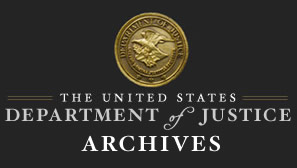


District Court Decisions
Kenney v. DOJ, No. 07-1989, 2010 WL 1242273 (D.D.C. Apr. 1, 2010) (Friedman, J.). Plaintiff claims that the statute of limitations on his claim pertaining to his 1996 request did not begin to run because he had not paid fees owed on his request, meaning he had not exhausted his administrative remedies. However, "the requirement that a requester pay fees before he may be deemed to have exhausted his administrative remedies is for the agency's protection, not the requester's. The Court is not aware of any case in which the nonpayment of fees has worked to a plaintiff's benefit by allowing him to file suit when it otherwise would have been time-barred. . . . Were the Court to adopt plaintiff's position, FOIA requesters would routinely be able to delay the running of the six-year statute of limitations indefinitely by not paying their fees. Such an interpretation would undermine the purpose of the statute of limitations, a limited waiver of sovereign immunity enacted by Congress that must be strictly construed."
Plaintiff is also incorrect in his assertion that the statute of limitations should not have started until the time at which his administrative appeal was resolved. D.C. Circuit precedent "makes clear . . . that plaintiff's cause of action accrued - and thereby started the running of the statute of limitations - twenty business days after he filed his administrative appeal, regardless of the fact that the agency had not yet ruled on that appeal." Indeed, the Circuit specifically held "that the statute of limitations was not tolled 'from the date [the cause of action] accrues until final administrative disposition.'"
Finally, plaintiff's argument that DOJ should be estopped from making its statute of limitations argument because its November 7, 2001 letter explained to plaintiff that he could "'seek judicial review,'" fails because the government did not make a "'definite representation'" to plaintiff as to the deadline for filing suit. Furthermore, "[e]ven if defendant's letter could be interpreted to state that the statute of limitations began to run on the date the letter was received, reliance on such a representation would not be reasonable." Finally, "defendant's actions [cannot] be deemed 'affirmative misconduct'; defendant merely informed plaintiff of the availability of judicial review, which it is statutorily required to do. . . ."

